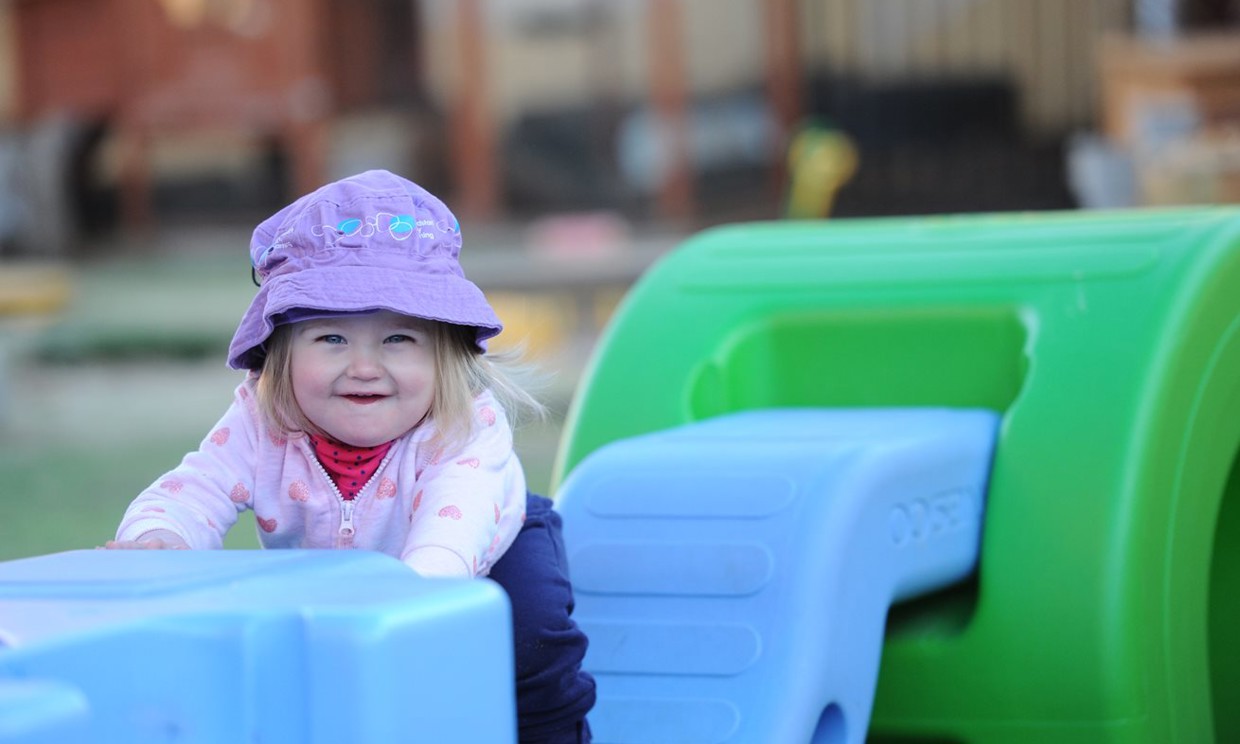We’ve all seen those children out in the playground who fall over and just get straight back up. They brush themselves off, are not fazed, and continue on with the day.
These children are showing natural resilience – they have a built-in capacity to deal with setback or disappointment and don’t let these factors stop them having fun.
But many children are not born with this resilience, and it’s important they develop it because it helps them deal with stress throughout their lives in situations such as starting a new childcare centre, going to school or making friends in the playground.
Children with resilience will be able to ask for help when they need it, change their plans to accommodate the day, use strategies to manage their emotions and keep trying if something doesn’t work out. It’s their ability to get through the challenges life throws their way and bounce back positively.
A child’s personality can play a big part in whether they need more support in developing resilience but external factors are also a guiding factor.
Psychologists agree that parents can play an active role in helping their children develop resilience throughout their lives. And because children learn by watching the adults around them, it’s important we are aware of how we approach stressful situations and deal with them.
Resilient children are those who can meet a challenge and keep trying so it’s important to notice and praise children for effort and persistence, even if they don’t achieve the desired outcome every time.
Tips for building resilience:
For more stories on dealing with change and feelings, read our earlier articles including tips for managing separation anxiety and tips to make travelling with children a little easier
Sources:
http://www.kidsmatter.edu.au/health-and-community/enewsletter/building-resilience-cope-stress
http://www.beststart.org/resources/hlthy_chld_dev/pdf/BSRC_Resilience_English_fnl.pdf
These children are showing natural resilience – they have a built-in capacity to deal with setback or disappointment and don’t let these factors stop them having fun.
But many children are not born with this resilience, and it’s important they develop it because it helps them deal with stress throughout their lives in situations such as starting a new childcare centre, going to school or making friends in the playground.
Children with resilience will be able to ask for help when they need it, change their plans to accommodate the day, use strategies to manage their emotions and keep trying if something doesn’t work out. It’s their ability to get through the challenges life throws their way and bounce back positively.
A child’s personality can play a big part in whether they need more support in developing resilience but external factors are also a guiding factor.
Psychologists agree that parents can play an active role in helping their children develop resilience throughout their lives. And because children learn by watching the adults around them, it’s important we are aware of how we approach stressful situations and deal with them.
Resilient children are those who can meet a challenge and keep trying so it’s important to notice and praise children for effort and persistence, even if they don’t achieve the desired outcome every time.
Tips for building resilience:
- Ensure your child is surrounded by caring relationships. Building a close and loving relationship is key because when they feel loved, supported and accepted they can get through the hard times. Ensure you give them plenty of hugs, play with them, listen to their stories, reduce TV time and build your relationship instead and read them stories.
- Be a positive role model by being patient, using humour, staying calm and positive and being in charge of your emotions. Younger children will model their behaviour on our own so show them you are resilient.
- Look to the community and ask for help. Community groups may offer courses to help parents learn to reduce stress, handle challenging behaviours or support special needs.
- Teach your children to take deep breaths when they are feeling stressed, find a quiet place to calm down, ask for help or encourage them to find something they enjoy doing.
- Teach children to accept that their feelings are okay. This means they can express their frustration or worry more easily.
- Allow children to problem solve and work out ways of dealing with their issues themselves.
- Help build up your child’s confidence by encouraging them to keep trying, to enjoy finding out what their strengths are and to learn that making mistakes is okay.
- Taking time out to allow children to play and have fun is essential. This allows them to take the time they need to build confidence and master new skills. It also helps them to learn how to problem solve.
- Encourage children to have a laugh and have some fun. This allows them to look at the bright side of situations and feel positive.
For more stories on dealing with change and feelings, read our earlier articles including tips for managing separation anxiety and tips to make travelling with children a little easier
Sources:
http://www.kidsmatter.edu.au/health-and-community/enewsletter/building-resilience-cope-stress
http://www.beststart.org/resources/hlthy_chld_dev/pdf/BSRC_Resilience_English_fnl.pdf


